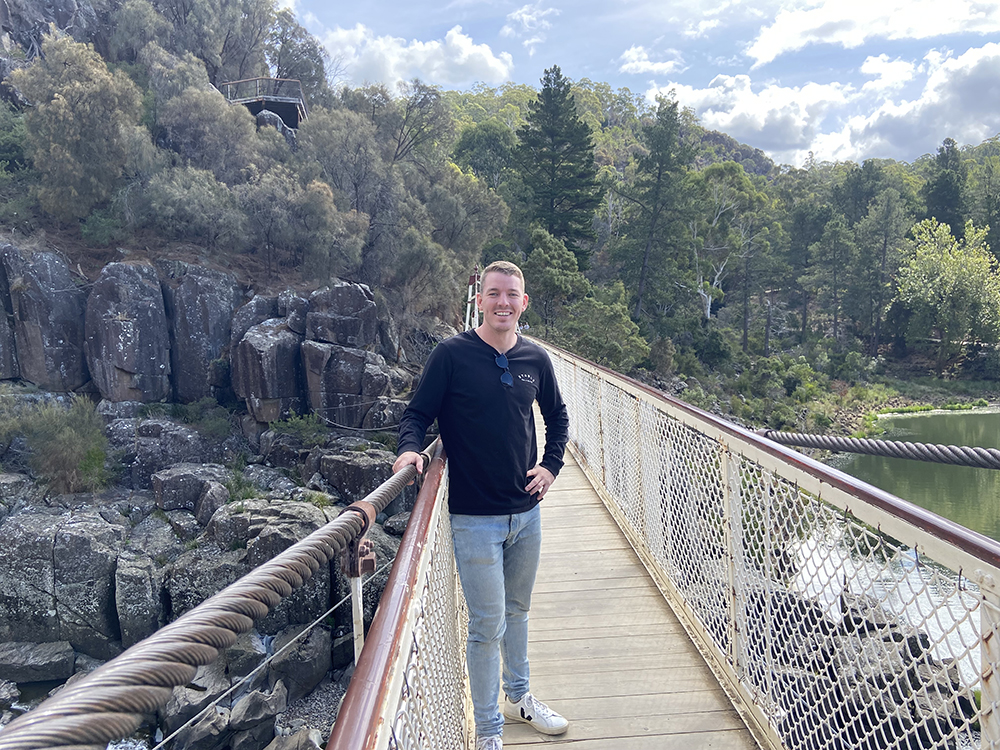
Working out of Darwin, Dr Bryce Brickley is a prominent Research Fellow focused on Men’s Health. Amongst the many initiatives and research focuses he pursues, Bryce has seen time and again that when social sport is used as an entry point, it can open doors to broader conversations about health, family, and community.
What is your role here at Flinders?
I’m a Research Fellow in Men’s Health, based in the Rural and Remote Health discipline at Flinders, working out of Darwin. My research focuses on cardiovascular health equity, Aboriginal and Torres Strait Islander men’s health, particularly supporting men’s groups in remote communities to design, lead, and evaluate their own health and wellbeing initiatives. A big part of my work involves community partnerships, capacity strengthening, and delivering health equity impacts.
How did you initially go down the path of men’s health?
It really started through relationships and community engagement. I was fortunate to connect with leaders in men’s health research, including Professor James A. Smith, Associate Professor Kootsy Canuto, and Jason Bonson – who continue to guide and support my work. The need for culturally appropriate and gender-sensitive approaches to support men’s health and wellbeing consistently comes up in many conversations with communities and partner organisations I’ve connected with. Their voices inspire me to focus on co-design approaches that value men’s voices, strengths, and leadership in shaping their own health journeys.
Why is social sport so important for our health?
Sport is a powerful connector, it brings people together, creates a sense of belonging, and provides structure and routine. For the men I work with in particular, social sport offers a culturally safe and non-threatening space to yarn, share experiences, and support one another. It’s not just about fitness – it’s about identity, social and emotional wellbeing. We’ve seen time and again that when sport is used as an entry point, it can open doors to broader conversations about health, family, and community.
What are some of the men’s health problems you’d like to see eradicated, or at least improved, in the near future? And how?
I’d like to see real progress in reducing preventable chronic conditions – heart disease, diabetes, and mental ill-health. But beyond that, I’d like to see structural change: more sustainable programs that are led by men, for men, and with community at the centre. Improving health outcomes isn’t just about services – it’s about belonging, purpose, and strong cultural identity. That’s where the biggest impact happens.
Do you have any exciting research projects in the pipeline?
Yes, a few! We’re working with men’s groups in Milikapiti and Nauiyu to co-design local health and wellbeing initiatives and cultural exchanges—helping to fill service gaps in remote areas and generate new knowledge about the connection between heart and mind in an Aboriginal and Torres Strait Islander context.
We’re also partnering with local organisations to co-develop a version of the Aussie-FIT program that uses sport as a platform for health behaviour change—one that is community-led, holistic, and designed by and for Aboriginal and Torres Strait Islander men.
Tell us about your ideal weekend.
I like weekends that have a mix of rest and connection – catching up with friends, a bit of exercise, spending time outdoors and at the beach, maybe a bit of footy.

